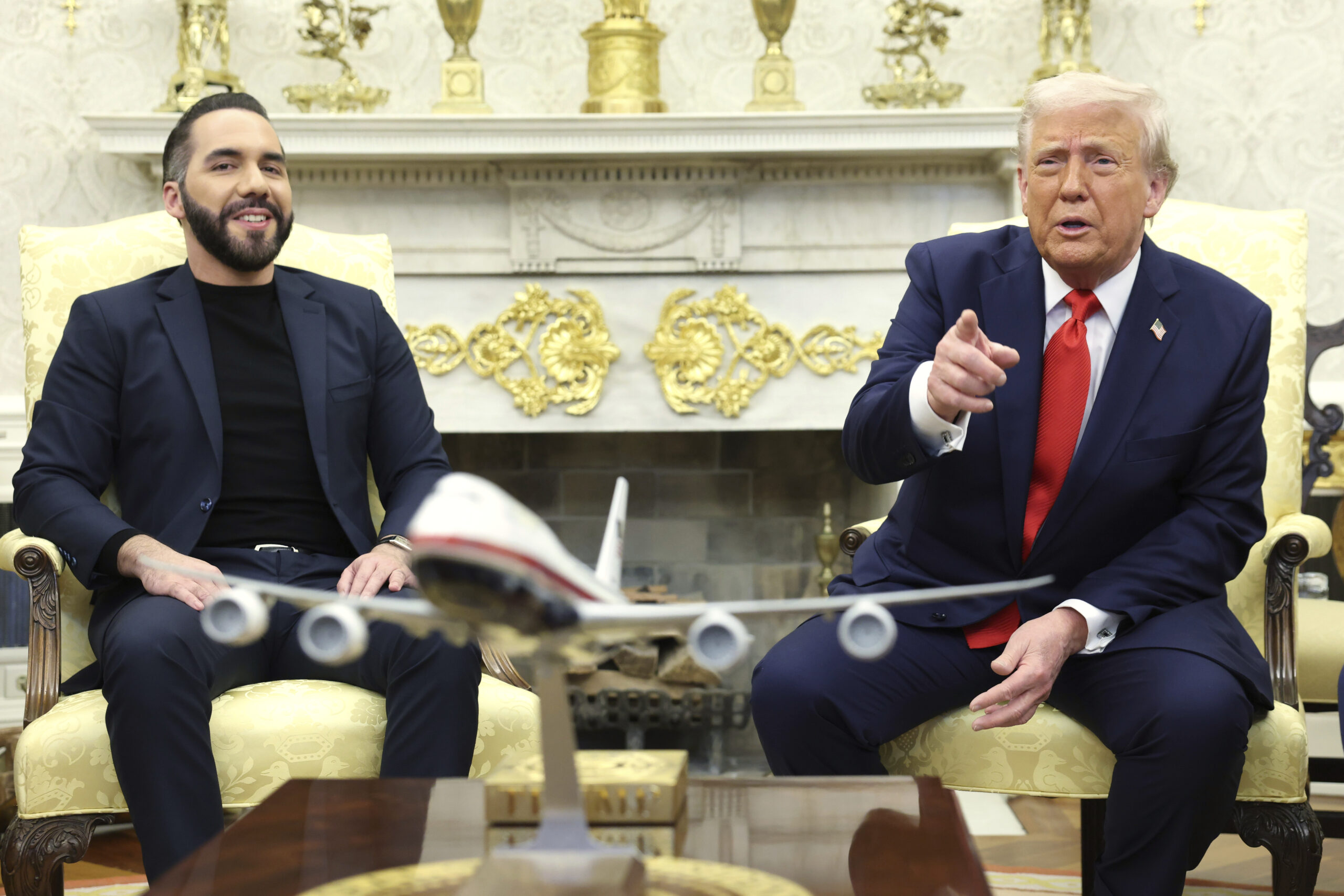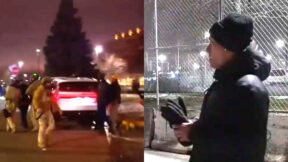‘We Got a Beating for Breakfast… Lunch… Dinner’: Man Deported by Trump Tells of Harrowing Prison Conditions

Pool via AP
The more than 230 Venezuelan nationals deported by the Trump administration to a Salvadoran prison were released as part of a prisoner swap on Friday.
In March, the administration deported the men to El Salvador, where President Nayib Bukele imprisoned them in the country’s notorious CECOT prison. President Donald Trump alleged that all of the deported individuals were violent criminals. However, an investigation by 60 Minutes found that at least 75% of the deportees had no criminal record.
The swap saw El Salvador send the Venezuelan men back to their country of birth while Venezuelan President Nicolás Maduro sent 10 American citizens and permanent residents back to the U.S.
Trump arrested the men under the 1798 Alien Enemies Act, which grants the government sweeping powers during wartime. The president argued that the presence of the Venezuelan nationals in the U.S.constituted an “invasion” and claimed the men belonged to the criminal gang Tren de Aragua, which Trump baselessly alleged is controlled by the Venezuelan government.
On Friday, Mother Jones published a piece featuring interviews with family and friends of some of the freed Venezuelans. One man shared a video of his brother, Arturo Suárez, shortly after he arrived in Caracas as a free man.
“We spent four months without any contact with the outside world,” Suárez said. “We were kidnapped.”
He later added, “We got a beating for breakfast. We got a beating for lunch. We got a beating for dinner.”
One of the freed men, Neri Jose Alvarado Borges, was reportedly arrested and deported over a tattoo that he said U.S. immigration authorities told him was a gang tattoo. But it turned out to be a tattoo promoting autism awareness, a nod to his brother who has autism.
“Now it’s done,” María Daniela, Alvarado Borgers’ sister, told Mother Jones via phone from Venezuela. “Now we can say we are done with this nightmare.”
Trump spent weeks insisting he had no power to ask Salvadoran President Nayib Bukele to return the men he had just deported. For his part, Bukele claimed he also lacked the authority to return deported prisoners.





Comments
↓ Scroll down for comments ↓